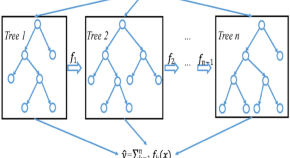Management of medical record data with multi-level security on Amazon Web Services
Authors (first, second and last of 4)

Collection
The medical system makes use of evolving technologies, algorithms, and software for analyzing complexity in healthcare. Recent technological applications can significantly improve the accuracy of diagnoses, patient care, and the design and development of novel drugs. Early diagnosis of diseases and effective management and control with a healthy diet, regular exercise, and proper medications are effective approaches to reducing the complexity of diseases for well-being. Since undiagnosed and untreated diseases can have serious consequences, regular screening is undeniably useful for facilitating better treatment at the right time. Fuzzy linear programming plays a key role in strategic planning, modeling, and analyzing the modern healthcare system for efficient control. Optimizing fuzzy linear programming-based techniques is critical to identifying a cause, selecting the appropriate diagnostic method, preventing complications, and solving them.
Modern diagnostic tools need to identify all vital criteria relevant to the disease. Despite the data from those criteria being changeable, they affect the progress of disease diagnosis. Using fuzzy linear programming to perform data mining with advanced techniques and technologies is crucial to controlling a large amount of big data for predicting and diagnosing different categories of diseases and precisely detecting patients suffering from more than one disease, which is quite a challenge for medical specialists. Since long-term health effects emerge if any disease is not managed or treated properly. Fuzzy-based modern techniques are approached to identify the risk of critical diseases among the patients, minimal errors, diminish mortality rate, less human intervention and effort, etc., Developing fuzzy linear programming-based medical diagnostic system are required for high accuracy which is extremely challenging in the diagnosis of all types of health-related ailments.
This Topical Collection outlines the significance of the modern healthcare system for advanced analysis of medical prevention or treatment methods with fuzzy linear programming for high precision. A variety of techniques and technologies in medical data management are being used to provide better treatments.
Topics
-Fuzzy linear programming-based modern multi-dimensional technique for diagnosis and prevention of medical errors
-Challenges and developments of fuzzy linear programming-based modern medical systems applications in diagnosis
-Fuzzy linear programming to enhance the interpretability of real-world medical data for decision-making
-Fuzzy linear programming for advanced detection and diagnosis of co-morbidity in patients
-Fuzzy linear programming optimization for modern computer-aided detection in medical imaging
-Intelligent fuzzy inference system and internet of things (IoT) for reducing uncertainty in the healthcare systems
-Fuzzy mathematical analysis in modern health systems for personalized medicine with precision
-Fuzzy logic algorithm-based automated drug delivery and therapy for controlling future healthcare system
-Advances in fuzzy and optimized technologies for the diagnosis and monitoring of critical care patients and their applications
-Fuzzy-artificial intelligence-based new approaches in circular supply chain management for modern healthcare systems
Tarni Manda, Professor, National Institute of Technology Jamshedpur, India. He received M. Sc. in Statistics from Bhagalpur University in 1980, M. Sc. in Mathematics from Ranchi University in 1995, and Ph.D. in Operations Research from Ranchi University in 2001. He has published many articles in international journals and conferences and He has also been a reviewer of many international journals. His research interest focuses on Operational Research, Fractional Functional Programming Problems, Mathematical Statistics, Applied Statistics, and Numerical Methods
Uzay Kaymak, Professor, Eindhoven University of Technology, The Netherlands. He received the MSc degree in electrical engineering, the degree of chartered designer in information technology, and the PhD degree in control engineering from Delft University of Technology, Delft, The Netherlands, in 1992, 1995, and 1998, respectively. Currently, he is a professor of information systems in health care in the Department of Industrial Engineering & Innovation Sciences, Eindhoven University of Technology, The Netherlands. He is an associate editor of the IEEE Transactions on Fuzzy Systems and is a member of the editorial board of several journals.
Pablo Pancardo, Associate Professor, Juarez Autonomous University of Tabasco, Mexico. He received the M.Sc. degree in information technology from the Monterrey Institute of Technology and Advanced Studies (ITESM), in 1998, and the Ph.D. degree in computer science from the Juarez Autonomous University of Tabasco (UJAT), in 2016. He has more than 40 publications in relevant international conferences and journals on Ubiquitous Computing and novel AmI applications related to welfare and healthcare. His research interests include ambient intelligence, fuzzy logic, the IoT, and HCI.

